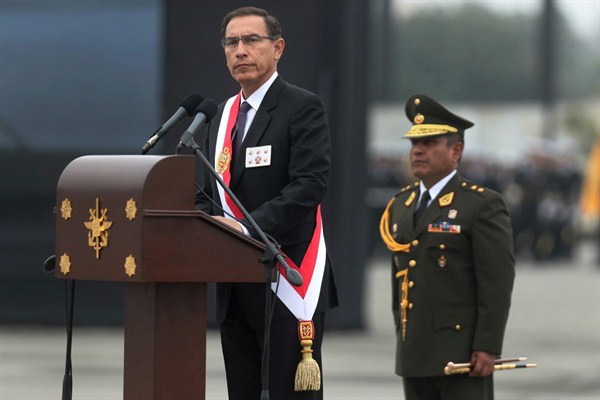Casual observers of Peruvian politics can be forgiven for not being able to keep up with recent events there. Opposition leader Keiko Fujimori was released from jail on Wednesday, just a week after her provisional detention on suspicion of money-laundering. Meanwhile, earlier this month, President Martin Vizcarra strong-armed Peru’s Congress—where Fujimori’s conservative Popular Force party has a majority—into approving a referendum on his signature package of political and judicial reforms.
Vizcarra has a good chance of winning that vote, which is set for Dec. 9, but not everyone is convinced that it’s the best prescription for the long-term health of Peru’s democracy. WPR spoke with Julio Carrion, a professor at the University of Delaware and close observer of Peruvian politics, for his assessment of this tumultuous period in the Andean nation’s history.
The recent political intrigue in Lima has centered on Fujimori, whose father ruled the country autocratically from 1990 until 2000, and the investigation into $1.2 million of undeclared contributions to her 2011 presidential campaign. That money allegedly came from Brazilian construction company Odebrecht, the key player in a major corruption scandal that has swept across Latin America.

